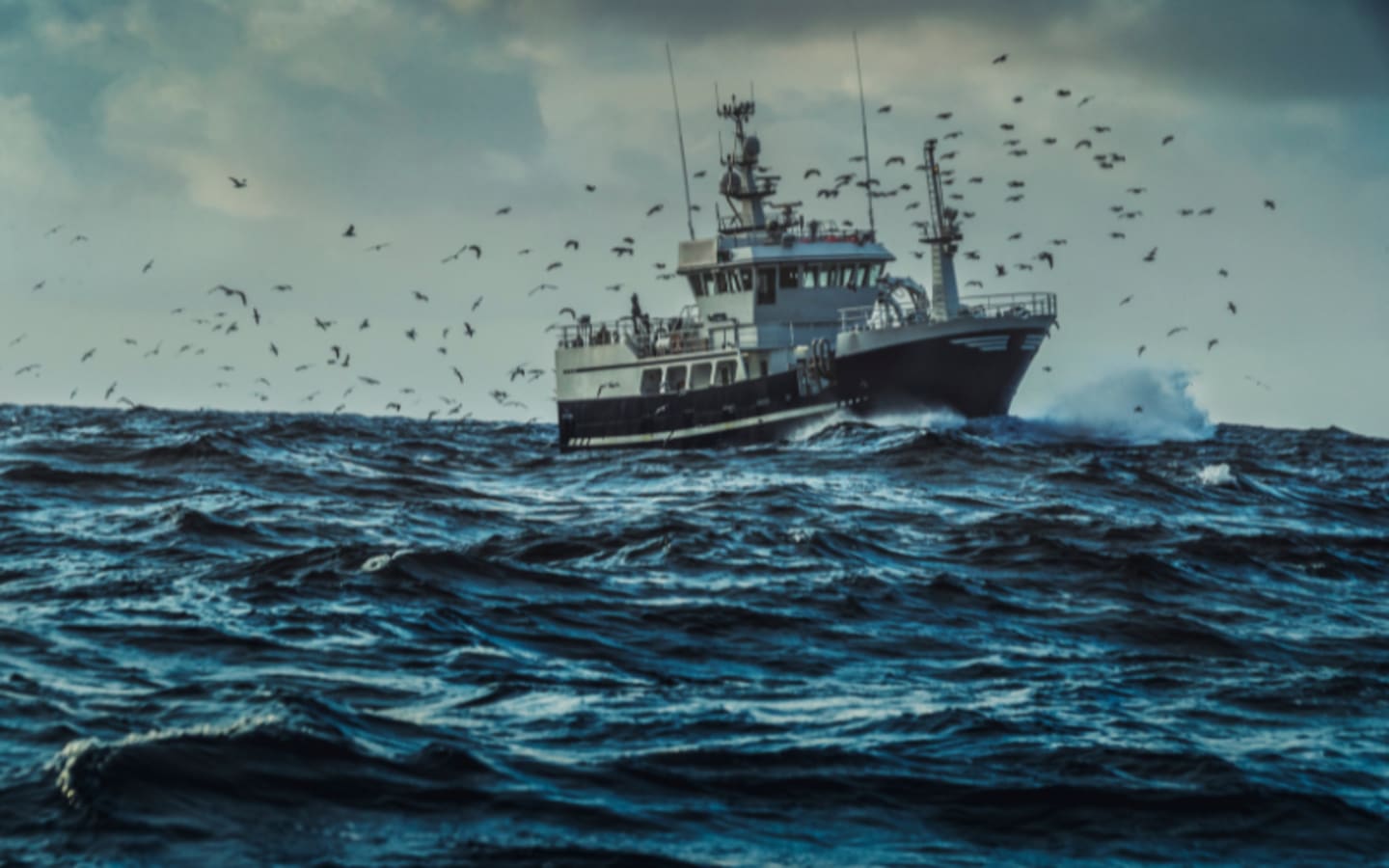Illegal fishing is a growing problem that’s hitting American fishermen hard. Foreign vessels sneaking into U.S. waters or ignoring international rules are flooding markets with cheap, unregulated seafood. This undercuts the hardworking folks who rely on fishing for their livelihoods, from the Gulf Coast to Alaska’s rugged shores. A new bipartisan effort, the Fighting Foreign Illegal Seafood Harvest (FISH) Act, aims to tackle this issue head-on, protect U.S. coastal communities, and keep American fisheries thriving.
Introduced by Representatives Dan Crenshaw from Texas, Seth Magaziner from Rhode Island, and Nick Begich from Alaska, the FISH Act is a practical, no-nonsense response to illegal, unreported, and unregulated (IUU) fishing. These lawmakers, backed by Senators Dan Sullivan of Alaska and Sheldon Whitehouse of Rhode Island, are pushing for stronger measures to stop foreign vessels from exploiting U.S. waters and global fisheries. The bill’s goal is clear: level the playing field for American fishermen who play by the rules and ensure the seafood industry remains a cornerstone of coastal economies.
The problem of IUU fishing isn’t just about economics—it’s a national security issue too. Foreign vessels that flout regulations often operate in shadowy networks, sometimes linked to organized crime or forced labor. They overfish, damage ecosystems, and drive down seafood prices, making it tough for U.S. fishermen to compete. Coastal towns, especially in places like Rhode Island and Alaska, feel the pinch when local jobs and businesses suffer. The FISH Act steps in with a multi-pronged approach to shut down these bad actors and protect American interests.
One key part of the legislation is a blacklist of foreign vessels caught engaging in IUU fishing. The National Oceanic and Atmospheric Administration (NOAA) would be tasked with creating and maintaining this list, making it easier to track and penalize offenders. The bill also calls for more Coast Guard inspections at sea, giving authorities the muscle to catch illegal fishers in the act. Vessel owners involved in these activities would face sanctions, hitting them where it hurts—their wallets. By cracking down on these operations, the FISH Act aims to deter illegal fishing before it even starts.
The legislation doesn’t stop at U.S. borders. It builds on the Maritime SAFE Act, a previous law designed to strengthen global fisheries management. The FISH Act pushes for tougher international agreements to ensure other countries step up their efforts against IUU fishing. This is critical because illegal fishing is a global problem—vessels from nations like Russia and China often operate far from home, exploiting loopholes in international law. By leading the charge, the U.S. can set a standard for sustainable fishing practices worldwide.
For American fishermen, the stakes couldn’t be higher. In Alaska, where fishing is a way of life, communities depend on healthy fisheries to survive. The state’s waters produce some of the best seafood in the world, from salmon to crab, but illegal fishing threatens that legacy. Representative Begich, hailing from Alaska, emphasized that the bill protects not just jobs but the values that make the state’s seafood industry a point of pride. Similarly, in Rhode Island, Representative Magaziner highlighted how illegal fishing undercuts local workers who follow sustainable practices. The FISH Act ensures these communities aren’t forced to compete against cheaters who cut corners.
The National Fisheries Institute, a leading industry group, has拋 its weight behind the bill. Its president, Lisa Wallenda Picard, praised the legislation for targeting foreign offenders without piling more regulations on American companies. This is a big deal for fishermen already dealing with rising costs and complex rules. Instead of adding red tape, the FISH Act focuses on stopping the real culprits—foreign vessels that skirt the law and flood markets with cheap seafood.
On the Senate side, the companion bill introduced by Senators Sullivan and Whitehouse mirrors the House version’s tough stance. This bipartisan support shows that protecting U.S. fishermen transcends party lines. It’s about standing up for hardworking Americans who face unfair competition from abroad. The Senate’s involvement also signals that the FISH Act has a real shot at becoming law, bringing relief to coastal communities across the country.
The broader impact of IUU fishing can’t be ignored. Beyond economics, it’s a threat to ocean ecosystems. Overfishing by unregulated vessels depletes fish stocks, harms marine life, and disrupts the balance of fragile underwater environments. For guys who love the outdoors—whether it’s fishing off the coast or grilling fresh catch on the weekend—this hits close to home. Sustainable fisheries mean more than just jobs; they ensure future generations can enjoy the same waters and wildlife we do today.
The FISH Act also sends a message to the world: the U.S. won’t stand for illegal fishing that threatens its waters, workers, and way of life. By boosting Coast Guard patrols, blacklisting rogue vessels, and pushing for global cooperation, the bill takes a stand for fairness and accountability. It’s a practical plan that doesn’t just complain about the problem but actually does something about it.
For coastal communities, the FISH Act is a lifeline. It protects the small-town docks, the family-owned boats, and the markets that keep America’s seafood industry alive. From the shrimp boats in Texas to the salmon trawlers in Alaska, this legislation is about giving fishermen a fair shot. It’s about ensuring that the seafood on your plate comes from folks who respect the rules, not from foreign operations that exploit the system.
As the FISH Act moves through Congress, it’s gaining traction as a commonsense solution to a growing problem. With support from both sides of the aisle and the backing of industry leaders, it’s poised to make a real difference. For American fishermen, it’s a chance to reclaim their place in a competitive market and keep coastal economies strong. For the rest of us, it’s a step toward protecting our oceans and ensuring the seafood we love stays sustainable for years to come.





